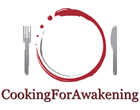Last night I was sent a link to a TED talk – the researcher Brene Brown was talking about connection and love. She had spent around 6 years analysing 1000’s of stories and 100’s of in-depth interviews, looking into people’s responses to belonging, heartbreak, love and connection. She found that there was only ONE variable between the people who claimed they felt a strong sense of connection and belonging, and the rest – the ‘connected’ people had the courage to be imperfect and vulnerable. Brown concludes that meaningful connection happens as a result of authenticity.
I’ve heard the Zen teacher Ed Brown greet a room of students on the first evening of retreat, and share that he is feeling, in that moment, anxious. “But you’ve been doing Zen for 40 years and you still feel anxious, what’s your problem?” he mockingly berates himself. “I’m a human being” he reminds us. Don’t you love it when senior Buddhist teachers are comfortable in revealing their human-ness?!
I have started to notice a theme – Brene Brown calls it the Power of Vulnerability.
At Wangapeka we have just finished a 5 day retreat which ran with the title “Choosing Freedom”. There was a lot of deep contemplation of what those words might even mean – what is choice, and what does it mean to be free?
Language is so clunky a lot of the time. I wondered, eventually, if ‘choosing freedom’ was a potential red-herring. As soon as I choose freedom, there is something controlling, ego-driven about it. I think the purest, freest moments have been when freedom has chosen me. Or rather, freedom has chosen itself and I have gotten out of the way.
Suzuki Roshi said that our dharma practise is just to be ourselves. When we do not expect anything we can be ourselves. That is our way, to live fully in each moment.

In this context, being free does not mean never being sad or upset – some things just hurt. The Zen master Seng-tsan taught that true freedom is being “without anxiety about imperfection.” In those moments I have been practising simply that ‘sadness feels like this’. It’s ok to be sad when I’m not drowning in the story behind it, or fighting it. It’s just golden tears – the title of the gorgeous Kilmt painting, below.
I love this poem by Hafiz which encourages us to let our sadness in:
My Eyes So Soft – by Hafiz
Don’t surrender your loneliness so quickly.
Let it cut more deep.Let it ferment and season you
As few human or even divine ingredients can.Something missing in my heart tonight
Has made my eyes so soft,
My voice so tender,My need of God
Absolutely
Clear
One of my dharma teachers swaps out the word ‘God’ for ‘compassion’ which is interesting because Brene Brown says in her talk than another trait of ‘connected’ people is that they are compassionate – towards themselves first, and also to others.
I’ve noticed that it’s not uncommon for there to be tears at the end of a retreat. Just gentle ‘wet eyes’ as people come to say goodbye. I’ve felt it myself, often. I think it’s that people have experienced, in the place of safety that’s offered on retreat, a opening to vulnerability and authenticity. And in that place of openness and acceptance; connection.
Recent meals at Wangapeka – featuring the Salad Of Connection, The Pavlova of Vulnerability, The Cake of Compassion and the Salad of Not Knowing







